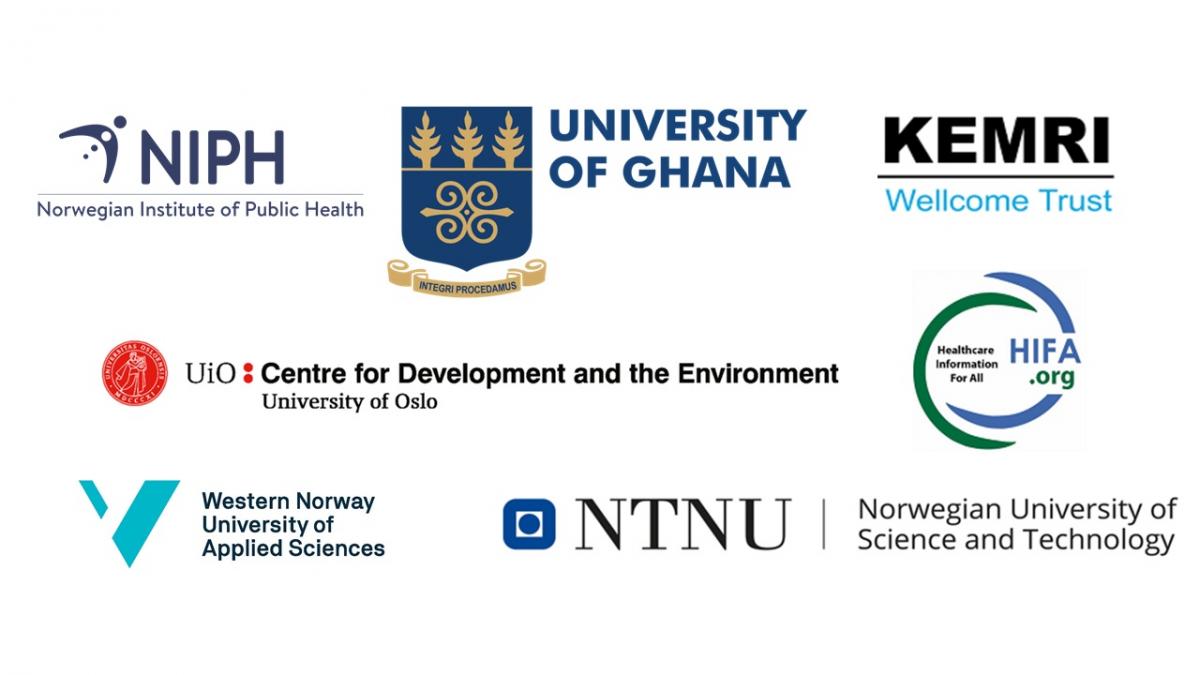This 4-year HIFA Project (2022-5) explores the question ‘How can decision-making processes for health systems strengthening and universal health coverage be made more inclusive, responsive and accountable?’ We focus on the extent to which actively involving civil society voices and other stakeholders can humanise decision-making processes for UHC and promote equity. Our project is situated within the discourses around complex policymaking processes for health systems, informing these processes with evidence, and fostering civil society’s agency and participation within these processes.
The HIFA Project is part of a major research collaboration Supporting inclusive and accountable health systems decisions in Ghana and Kenya for universal health coverage (SUPPORT-SYSTEMS) between the University of Ghana, the Kenyan Medical Research Institute (KEMRI), the University of Oslo, the Norwegian Institute of Public Health, the Western Norway University of Applied Sciences, the Norwegian University of Science and Technology and HIFA. HIFA was invited to contribute because of our unique approach to knowledge exchange (see HIFA Projects).
Testimonial:
“Involving key users of knowledge in research projects is crucial for ensuring the research is responsive to their needs and has a meaningful impact. However, accessing different groups of users is often challenging. HIFA has been a dynamic platform for building relationships with individuals from diverse professional backgrounds and roles within health systems worldwide, enabling the collection of insights that would have otherwise been difficult to obtain. The HIFA discussion forum has been especially valuable, enabling the research project to explore concepts and assumptions, and to understand how the research questions resonate with on-the-ground realities through the insights of individuals with relevant experiences. I highly recommend partnering with HIFA for research collaborations and will definitely do so again for future research proposals.” Unni Gopinathan, Principal Investigator, SUPPORT-SYSTEMS, June 2024


